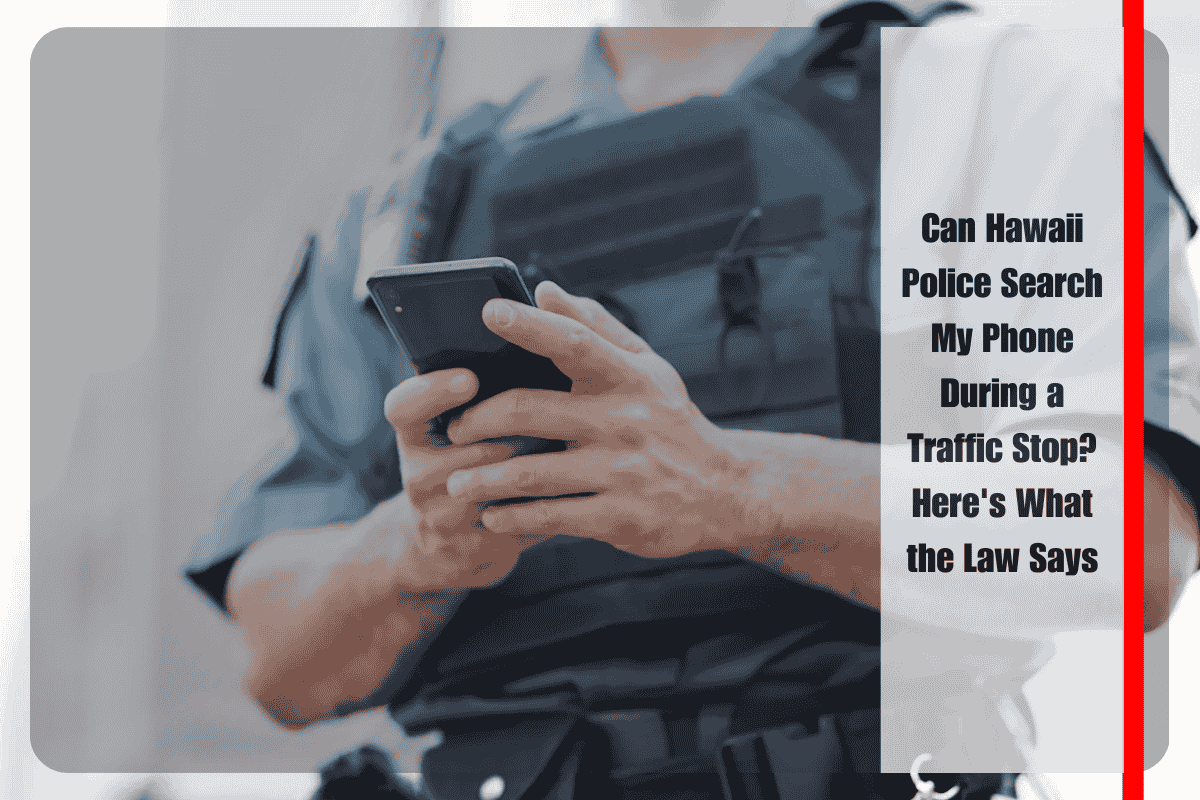In Hawaii, police generally cannot search your phone during a traffic stop without a warrant. This protection is rooted in the Fourth Amendment of the U.S. Constitution, which guards against unreasonable searches and seizures. The 2014 U.S. Supreme Court ruling in Riley v. California reinforced this by requiring police to obtain a warrant before searching the digital contents of a cell phone.
However, there are exceptions where police may search your phone without a warrant, such as if you give voluntary consent or in emergency situations where immediate action is necessary to prevent harm. Without consent or exigent circumstances, police must get a warrant based on probable cause to legally search your phone during or after a traffic stop.
If your phone is searched unlawfully, you have the right to challenge the search in court. An attorney can help file a motion to suppress any evidence obtained from the illegal search, which is crucial if that evidence plays a role in criminal charges.
It’s important to know your rights during a traffic stop. You may politely refuse to consent to a phone search, but remember not to physically resist officers. You can assert your constitutional rights clearly and request to speak with a lawyer.
Hawaii law protects your phone’s digital privacy during traffic stops by requiring a warrant for searches, with limited exceptions. Being informed of these rights helps ensure your privacy is respected when interacting with law enforcement.
Sources
[1] https://collincountymagazine.com/2025/07/10/can-hawaii-police-search-my-phone-during-a-traffic-stop-heres-what-the-law-says/
[2] https://www.tripadvisor.in/ShowTopic-g29222-i37-k2914900-Oahu_s_new_cell_phone_law_takes_effect_today-Oahu_Hawaii.html
[3] https://ag.hawaii.gov/wp-content/uploads/2025/03/HB277_HD1_TESTIMONY_JHA_02-26-25_.pdf
[4] https://www.honolulupd.org/policy/policy-warrantless-searches-and-seizures/
[5] https://law.justia.com/codes/hawaii/title-17/chapter-291c/section-291c-137/












